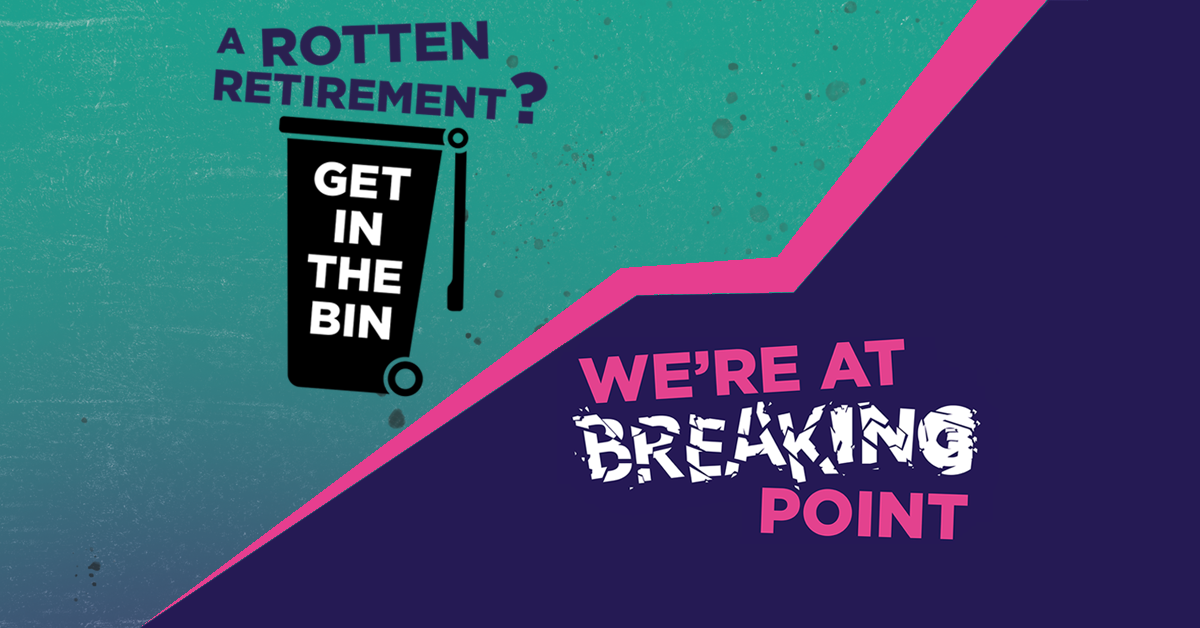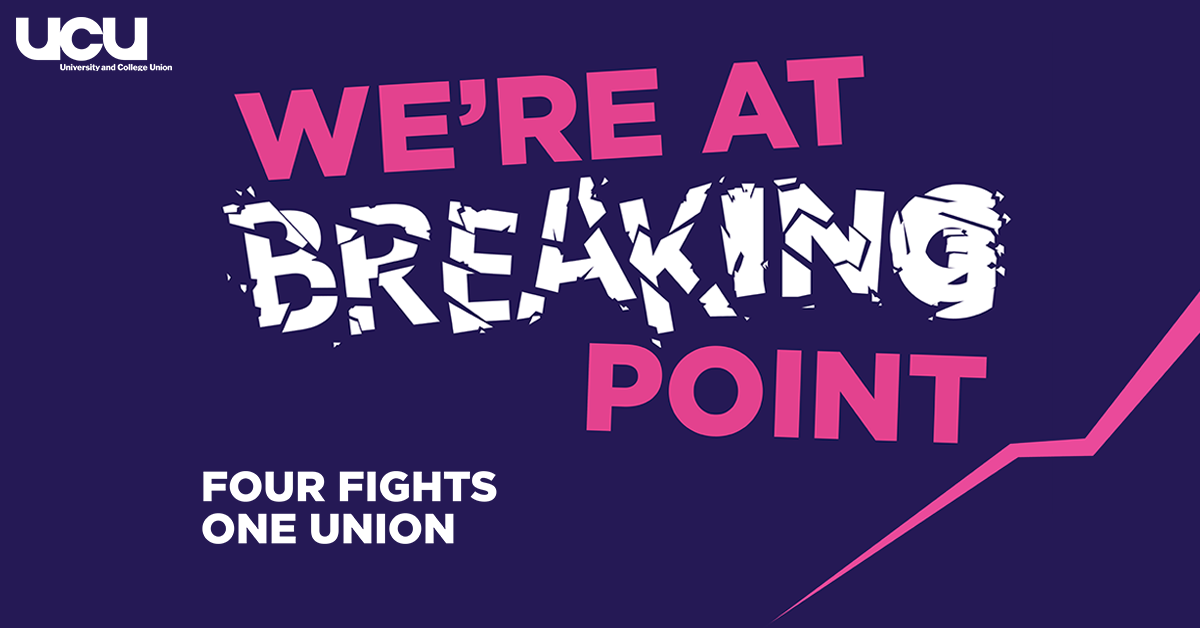
Strike dates in Four Fights and USS disputes
27 January 2022
Following the decisions taken about further industrial action by your higher education committee (HEC) last week, I am now in a position to tell you the dates on which UCU is calling strike action in the Four Fights and USS disputes.
In the USS dispute, there will be strikes from 14-18 February and 21-22 February.
In the Four Fights dispute, there will be strikes from 21-22 February and 28 February-2 March.
For information about your branch's strike dates, please consult this page.
If your branch won't be one of those on strike, I urge you to donate whatever you can to the UCU Fighting Fund to support your colleagues who are taking action on behalf of staff in every institution affected by these disputes.
You can hear more about the planned action in the online event which we are holding at 5pm today (which will be recorded).
This means there will be strike action in both disputes in February, including a period of joined up action when branches will strike over both disputes on the same days.
The strike dates for USS start earlier than those for Four Fights. This is to align with crunch meetings with employers in which cuts to the USS pension scheme could be formalised. This earlier action is targeted at USS employers because they are the ones that can act to prevent cuts to USS pensions.
In Four Fights, the first bout of action will take place alongside the last two days of USS action, followed by further action in Four Fights only the following week. Rolling regional action is then planned in Four Fights. Employers have demonstrated profound intransigence during this dispute, and this regional action will allow the union to extend the length of time it is able to take action under its current mandate.
All strike dates called today will be UK-wide, i.e. every eligible branch will take part at the same time. This phase will end on Wednesday 2 March with a massive day of action uniting staff and students, when the NUS has called a one-day student strike in pursuit of their demands for a fully funded, accessible, democratic, lifelong further and higher education system.
Employers can prevent this if they act now
Employers can prevent this disruption. As far as the Four Fights dispute is concerned, their finances are robust enough to make a positive investment in staff for the first time in over a decade: in wages, pay equality, secure jobs, and manageable workloads.
In the USS dispute, we have learnt from USS's recent consultation that scheme members would be willing to pay more to protect their current benefits—as long as employers pay a little more too.
We have therefore asked employers to increase their contributions by an amount which USS has already stated they can afford to pay. Our proposed solution will protect your benefits for as long as possible until a new valuation can be conducted and a fair, longer term outcome can be agreed.
If either dispute is suspended or resolved for any reason but the other dispute is not, the action in the unresolved dispute will still take place. A positive outcome in the Four Fights dispute does not mean we abandon the USS dispute, or vice versa. Neither dispute will be concluded without a democratic consultation of the members involved in it.
Potential further action after these strike dates
Following this term's strike action, there may be a marking and assessment boycott and there may also be a round of re-ballots to extend the six-month industrial action mandate which expires at the beginning of May.
Taken together, this will amount to the most sustained and ambitious programme of industrial action the university sector has seen. It is also the most varied—because as we have learnt from past experience, we need to be open to a wider range of tactics to increase our leverage over employers. Coordinating with students, extending the action by calling it on a rolling regional basis and building towards a marking boycott are all ways of achieving that.
This action would not need to be called if university staff were not under such a sustained attack. From massive pension cuts to unbearable workloads, precarious employment and deeply entrenched inequalities, not to mention wages that keep falling further and further behind the cost of living, the sector is being turned into a deeply inhospitable place to build a career. Imagine what it would look like after another ten years of decline—and commit today to coming together with your students and acting to change it for the better.
Jo Grady
UCU general secretary
- PrintPrint this page
- Share


